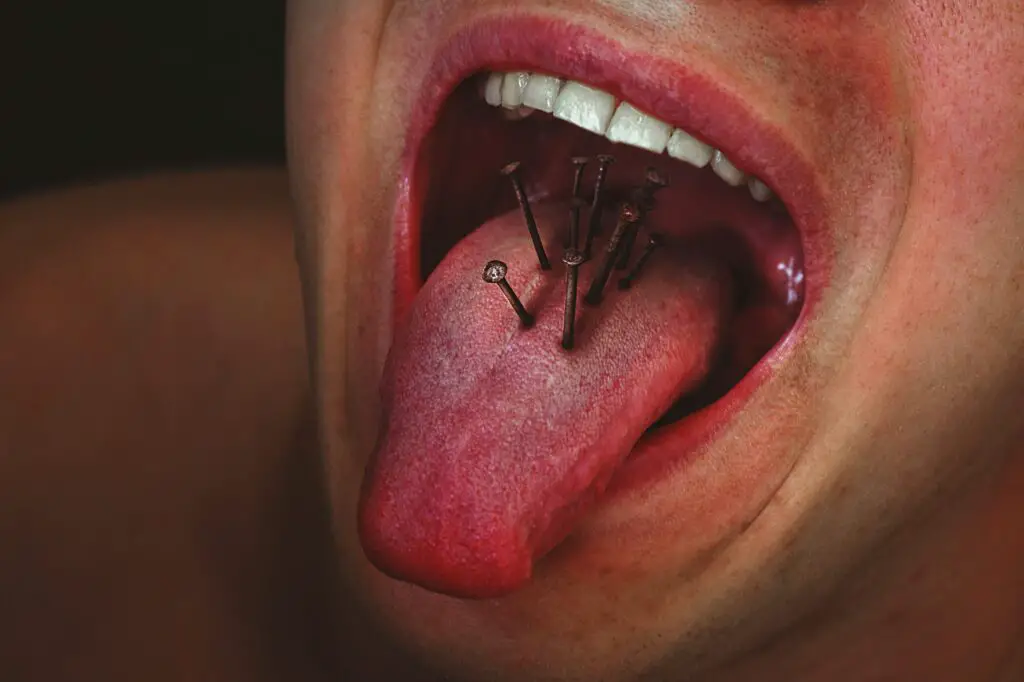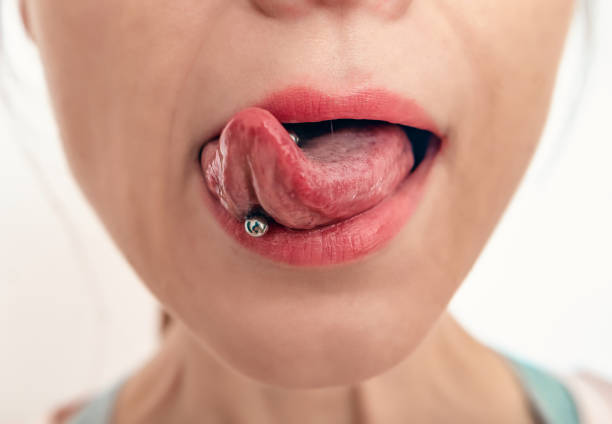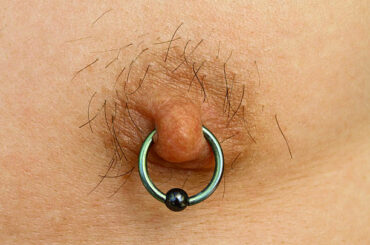Contents
What are pros and cons of tongue piercings?
Tongue piercings have become a fashionable form of self-expression, but before you take the plunge, it’s essential to weigh the pros and cons. Let’s delve into the intricacies of tongue piercings and uncover what they entail.
Introduction
Tongue piercings, once a symbol of rebellion, have evolved into a mainstream trend embraced by individuals seeking to express their individuality. The process involves piercing the tongue with a needle and inserting a decorative piece of jewelry. However, beneath the allure lie both benefits and drawbacks worth considering.
Pros of Tongue Piercings
Enhanced Aesthetic Appeal
One of the primary draws of tongue piercings is their aesthetic allure. Adorned with studs or rings, a pierced tongue can add a touch of edginess to one’s appearance, serving as a statement of personal style and flair. For example, imagine Sarah, a college student with a passion for body art. She opts for a sleek silver stud in her tongue, which complements her bold fashion choices and reflects her vibrant personality.
Self-Expression and Individuality
Tongue piercings serve as a canvas for self-expression, allowing individuals to showcase their unique personalities and tastes. Whether opting for a subtle stud or a bold barbell, the choice of jewelry reflects one’s identity and sense of individuality. Take Alex, for instance, a musician who views his tongue piercing as an extension of his creative identity. His intricate tongue ring serves as a conversation starter during gigs, sparking discussions about his eclectic musical influences.
Cultural and Societal Significance
In certain subcultures, tongue piercings hold cultural significance, symbolizing rites of passage or affiliations with particular groups. They serve as badges of identity, fostering a sense of community and belonging among like-minded individuals. For instance, within the punk rock community, tongue piercings signify rebellion and nonconformity, aligning with the movement’s ethos of individualism and anti-establishment values.
Potential Boost in Confidence and Self-Esteem
For some, tongue piercings can bolster confidence and self-esteem. The act of altering one’s appearance according to personal preferences can instill a sense of empowerment and self-assurance, leading to heightened levels of confidence in social interactions. Consider Maya, who struggled with self-image issues until she got her tongue pierced. The newfound sense of empowerment transformed her outlook, emboldening her to embrace her unique identity and assert herself in various social settings.
Cons of Tongue Piercings
Risk of Infections and Complications
One of the foremost concerns associated with tongue piercings is the risk of infections and complications. The oral cavity harbors bacteria, increasing the likelihood of post-piercing infections if proper hygiene measures are not observed diligently. For example, Emma neglected to follow her piercer’s aftercare instructions, resulting in a painful infection that required medical intervention. Her experience underscores the importance of meticulous oral hygiene and attentive post-piercing care.
Damage to Teeth and Gums
Tongue piercings pose a potential risk of dental damage, including chipped teeth and gum recession. The constant contact between the piercing and oral structures can exacerbate wear and tear, compromising dental health over time. John, an avid tongue piercing enthusiast, experienced firsthand the consequences of neglecting dental hygiene. Years of neglect led to enamel erosion and gum recession, prompting him to prioritize oral health and seek preventive measures to mitigate further damage.
Speech Impediments and Difficulties
Initially, tongue piercings may cause speech impediments and difficulties, affecting pronunciation and articulation. The presence of foreign objects within the oral cavity can impede tongue movement, leading to temporary speech alterations until acclimatization occurs. Jessica, upon getting her tongue pierced, encountered challenges articulating certain sounds due to swelling and discomfort. Through practice and perseverance, she gradually overcame speech impediments and adapted to her newfound oral accessory.
Potential for Allergic Reactions
Some individuals may experience allergic reactions to the materials used in tongue piercings, such as nickel or stainless steel. Allergic responses can manifest as swelling, redness, or discomfort, necessitating prompt removal of the offending jewelry. When Lily developed an allergic reaction to her tongue ring, she sought out hypoallergenic alternatives crafted from biocompatible materials like titanium. Making informed jewelry choices helped alleviate her symptoms and prevent future allergic episodes.
Pain and Discomfort During the Healing Process
The healing process following a tongue piercing can be uncomfortable, characterized by swelling, tenderness, and difficulty eating or speaking. Patience and meticulous aftercare are imperative to facilitate proper healing and minimize discomfort. Jake, eager to showcase his new tongue piercing, endured weeks of discomfort and dietary restrictions as his piercing healed. Despite the initial challenges, Jake remained committed to his aftercare regimen, ultimately enjoying the freedom to flaunt his adorned tongue without discomfort.
Health Considerations
Importance of Proper Hygiene and Aftercare
Maintaining stringent oral hygiene practices is paramount following a tongue piercing to prevent infections and promote optimal healing. Regular rinsing with saline solution and avoiding irritants such as alcohol-based mouthwashes are crucial components of post-piercing care. For Taylor, adhering to a rigorous oral hygiene routine became second nature after getting her tongue pierced. Diligent care minimized the risk of infections and expedited the healing process, allowing her to enjoy her piercing without complications.
Risks Associated with Oral Piercings
Beyond the immediate risks of infection, oral piercings can precipitate long-term complications, including gum recession, nerve damage, and dental fractures. Vigilant monitoring and proactive management are essential to mitigate potential risks. Sarah, a dental hygienist, educates her patients about the potential risks of tongue piercings based on her firsthand experiences. By emphasizing preventive measures and regular dental check-ups, Sarah empowers individuals to make informed decisions about oral piercings and safeguard their oral health.
Impact on Oral Health and Dental Hygiene
Tongue piercings can compromise oral health by facilitating the accumulation of plaque and debris around the jewelry. Routine dental check-ups and professional cleanings are indispensable for preserving oral hygiene and preventing oral health complications. James, a dentist, emphasizes the importance of regular dental visits for individuals with tongue piercings. Through comprehensive exams and tailored oral care plans, James helps patients maintain optimal oral health and mitigate the potential risks associated with oral piercings.
Potential Complications Such as Nerve Damage and Blood Loss
In rare instances, tongue piercings may result in nerve damage or excessive bleeding, necessitating prompt medical intervention. Awareness of potential complications empowers individuals to recognize warning signs and seek timely medical attention when warranted. When Alex experienced persistent numbness following his tongue piercing, he sought advice from a medical professional. Prompt intervention and diligent monitoring helped mitigate nerve damage and restore sensation to his affected tongue.
Social and Professional Implications
Perception in Professional Environments
In certain professional settings, visible body modifications, including tongue piercings, may be perceived negatively or pose barriers to employment opportunities. Consideration of workplace norms and dress codes is prudent when contemplating visible piercings. Emma, a job seeker in a conservative industry, opted to conceal her tongue piercing during interviews to avoid potential biases and ensure a positive first impression. By adhering to professional standards, Emma navigated the job market with confidence and integrity.
Social Stigmas and Stereotypes
Tongue piercings may elicit varying reactions from society, ranging from admiration to skepticism or disapproval. Negotiating societal perceptions and confronting potential stigmas require resilience and self-assurance. Josh, a staunch advocate for body positivity, challenges stereotypes surrounding tongue piercings by sharing his journey on social media. Through candid discussions and dispelling misconceptions, Josh fosters understanding and acceptance of diverse forms of self-expression within his community.
Impact on Relationships and Personal Interactions
Introducing a tongue piercing into interpersonal dynamics can evoke diverse reactions from friends, family members, and romantic partners. Open communication and mutual respect facilitate constructive dialogue and dispel misconceptions surrounding body modifications. Sarah, upon revealing her tongue piercing to her conservative family, encountered initial apprehension and skepticism. However, through patient explanations and reassurance, Sarah fostered acceptance and understanding among her loved ones, strengthening familial bonds in the process.
Cultural Perspectives on Body Modification
Body modification practices, including tongue piercings, hold diverse cultural significance across different societies and traditions. Understanding the cultural contexts surrounding body adornment fosters cross-cultural appreciation and acceptance. Mia, an anthropologist, explores the cultural significance of tongue piercings in indigenous communities through her research. By documenting oral traditions and rituals, Mia sheds light on the rich tapestry of cultural practices surrounding body modification and identity expression.
Personal Stories and Experiences
Exploring personal anecdotes and testimonials from individuals with tongue piercings provides insight into the multifaceted nature of the piercing experience. Each narrative offers a unique perspective on the joys, challenges, and lessons gleaned from embracing body modification. From first-time piercers to seasoned enthusiasts, the diverse array of experiences underscores the profound impact of tongue piercings on individual identities and self-discovery.
Alternatives and Considerations
Non-Permanent Alternatives to Tongue Piercings
For individuals hesitant to commit to a permanent tongue piercing, non-permanent alternatives such as magnetic or clip-on jewelry offer a temporary means of experimentation without the long-term commitment. Emily, curious about tongue piercings but wary of permanence, opts for a magnetic tongue stud to satisfy her curiosity without the commitment.
Temporary Options for Experimentation
Temporary tongue tattoos or oral jewelry decals provide an alternative avenue for self-expression, allowing individuals to explore different styles and designs before committing to a permanent piercing. Jason, intrigued by the idea of tongue piercings, experiments with temporary tongue tattoos to gauge their aesthetic appeal and suitability.
Personal Factors to Consider Before Getting a Tongue Piercing
Before embarking on the journey of tongue piercing, evaluating personal preferences, lifestyle considerations, and potential implications is crucial. Reflecting on motivations and expectations fosters informed decision-making and enhances the overall piercing experience. From pain tolerance to career aspirations, each individual factor informs the decision-making process and shapes the trajectory of one’s piercing journey.
Conclusion
In conclusion, tongue piercings encompass a myriad of pros and cons that merit careful consideration before proceeding. While they offer a platform for self-expression and individuality, they also entail inherent risks and responsibilities. By weighing the benefits against the drawbacks and prioritizing health and safety, individuals can navigate the complexities of tongue piercings with confidence and clarity.
Ultimately, the decision to adorn one’s tongue with a piercing is a deeply personal choice that encompasses both aesthetic preferences and practical considerations. Whether embracing the allure of tongue piercings or opting for alternative forms of self-expression, the journey of self-discovery continues to unfold, enriching lives and shaping identities along the way.









